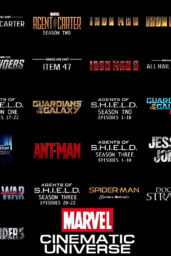Imagine sitting across from Will Ferrell, not as Ron Burgundy or Buddy the Elf, but as himself—a man deeply connected to humanity and humor. That's exactly what audiences got when Ferrell appeared on Stephen Colbert's The Late Show earlier this month. With characteristic wit, Ferrell addressed the glaring omission of his 2024 Netflix documentary Will & Harper from the Academy Awards' Best Documentary Feature category. “Suck it,” he quipped, directing his ire toward the doc branch of the Oscars. While some might dismiss this as comedic bravado, there's more beneath the surface of Ferrell's reaction—and the film itself.
Background and Context
Directed by Josh Greenbaum (Becoming You ), Will & Harper chronicles a poignant yet hilarious road trip taken by Ferrell and his longtime friend Harper Steele. The duo embarked on a cross-country journey after Steele came out as transgender, using their adventure to explore themes of friendship, identity, and acceptance. Released theatrically on September 27, 2024, before streaming globally on Netflix, the documentary struck a chord with critics and viewers alike. Critics praised its authenticity and emotional depth, awarding it a stellar 99% Tomatometer score on Rotten Tomatoes and a solid 74/100 on Metacritic.
But despite universal acclaim, the Academy overlooked Will & Harper . And while snubs are nothing new in Hollywood history, Ferrell's playful jab raises questions about how documentaries are evaluated—and whether popularity plays a role in nominations.
Analysis and Criticism
Let's be honest: Ferrell's comment wasn't just funny; it was cathartic. For many fans of the film, the lack of an Oscar nod felt like a slap in the face. After all, isn't storytelling supposed to resonate beyond box office numbers or genre constraints?
Documentaries often struggle for recognition because they're seen as niche compared to big-budget blockbusters. Yet, films like Won't You Be My Neighbor? and RBG have proven that audiences crave real stories told with heart. Will & Harper fits squarely into that tradition, blending humor with profound life lessons. Its omission feels less like oversight and more like systemic bias against smaller, character-driven narratives.
On the flip side, one could argue that the Oscars aren't the ultimate measure of success. The film's glowing reviews and audience reception speak volumes. As Ferrell himself demonstrated during his Late Show appearance, sometimes the best response to rejection is laughter—and letting your work stand on its own merit.
Philosophical Insight
Cinema has always been a mirror reflecting society's joys, struggles, and contradictions. Documentaries like Will & Harper remind us why we watch movies in the first place: to connect, to understand, and to feel less alone. In a world increasingly divided, these stories matter more than ever. Perhaps the true victory lies not in trophies but in touching hearts—one viewer at a time.
Personal Impressions
As someone who cherishes both comedy and sincerity in film, I found Will & Harper to be a masterclass in balancing levity with gravity. Watching Ferrell and Steele navigate complex emotions while cracking jokes reminded me of Richard Linklater's Boyhood —a story that unfolds naturally, almost imperceptibly, until you realize you've fallen in love with its characters. If anything, the Oscar snub underscores the need for broader representation within the Academy. Maybe next year, they'll take note.
Engage Readers with a Question
Do you think documentaries deserve more recognition at awards shows? Or should filmmakers focus solely on connecting with audiences rather than chasing accolades?












